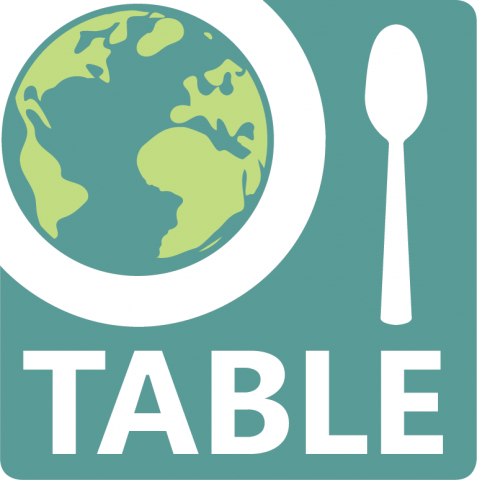TABLE seeks to facilitate informed discussions about how the food system can become sustainable, resilient, just, and ultimately “good”. We impartially set out the evidence, assumptions, and values that people bring to food system debates.
Growing public awareness of interconnected crises including climate change, biodiversity loss, malnutrition and inequality means that the environmental and social impacts of the food system are being scrutinised more closely. Furthermore, debates about the future of food are becoming more intense, divisive and polarised.
TABLE’s starting premise is that while debate is essential, polarisation is damaging. Our mission is therefore to support dialogue on food systems that is more nuanced and self-reflective.
Better dialogue requires two ingredients. First, scientific knowledge helps us to understand the issues and complexities around healthy and sustainable food. However, science alone cannot tell us how to act or decide what a good and ethical food system is. The second crucial ingredient is understanding how debates are influenced by people’s values and preferences. This is where TABLE steps in.
People hold many - sometimes contradictory - values, desires, assumptions and cultural preferences. These influence how they interpret scientific evidence, understand today’s world, judge what is most important in a food system, and think about possible and desirable futures. For example, a person’s opinion of whether we need to eat less meat may depend, among other things, on what they believe about the malleability of human nature, what landscapes should look like, and the moral standing of animals.
These underlying values need to be brought into the open and more explicitly discussed. When they are not, the consequences are all too often miscommunication, the entrenchment of existing positions, and inertia.
TABLE's goal therefore is to engage with a wide range of stakeholders and perspectives to reflect on values, to clarify the arguments, assumptions and evidence around issues of concern, and - where possible - to identify points of commonality.
How TABLE works
Our mission is to act as an honest broker in global food systems debates, while acknowledging that the current food system is in need of major transitions. We aim to bridge unhelpful divides by providing a platform and a method for deliberative dialogue, together with impartial analysis of key contestations.
TABLE sets out the evidence, assumptions, and values underpinning different viewpoints on food systems controversies. Through mapping debates, we highlight critical differences and areas of agreement, identify research questions to help resolve uncertainties, and suggest paths forward.
A key part of TABLE's process is facilitating dialogue between diverse voices in the food system. We aim to engage a wide variety of stakeholders, including researchers, farmers, industry, civil society and policymakers, and bring together representatives of different regions, sectors, areas of expertise and viewpoints. We seek to engage in debates impartially, while recognising that everyone, including our own staff members, has their own assumptions and values. Read more here: What do we mean by the word ‘impartiality’?
We use several methods of dialogue to tease apart contentious issues, including:
- Spoken or written interviews
- Invited blog posts
- Exchange of letters between stakeholders
- Panel discussions and workshops
- Our online discussion forum
As well as providing a platform for a wide range of voices, we describe and explore the conversation, leading to the following open-access outputs:
- Building Blocks: Short, peer-reviewed, foundational explainers of key concepts relevant to food systems and sustainability and their associated debates. Their function is to foster greater basic food systems literacy within the stakeholder community and ensure that debates do not simply arise from misunderstandings or differing definitions.
- Debates Dissected reports: Analytical, peer-reviewed reports, drawing upon our dialogue process and describing the debate. The goal is to help stakeholders reach a better mutual understanding of the reasons for agreements and disagreements, while highlighting areas that hold promise for more collaborative thinking and agreement.
- Podcasts: Each series focuses on a particular themes, each involving a range of speakers and perspectives on a particular question within the theme.
TABLE plans to apply this methodology to a wide variety of themes. Our first project focuses on the question of scale in the food system.
TABLE’s work is an ongoing and iterative process. We welcome feedback on our methodology.
TABLE's structure
We are a collaboration between the University of Oxford, the Swedish University of Agricultural Sciences (SLU) and Wageningen University and Research (WUR). TABLE is the successor to the Food Climate Research Network, based at the University of Oxford, which for 15 years conducted, synthesised, and communicated research on food sustainability. You can find previous FCRN explainers and FCRN reports on our website.
While TABLE is rooted in academia, we are not purely academic in our outputs - rather, we aim to retain the impartiality of academic research while connecting information to a wider audience in an accessible manner as well as fostering dialogue among diverse stakeholders.



